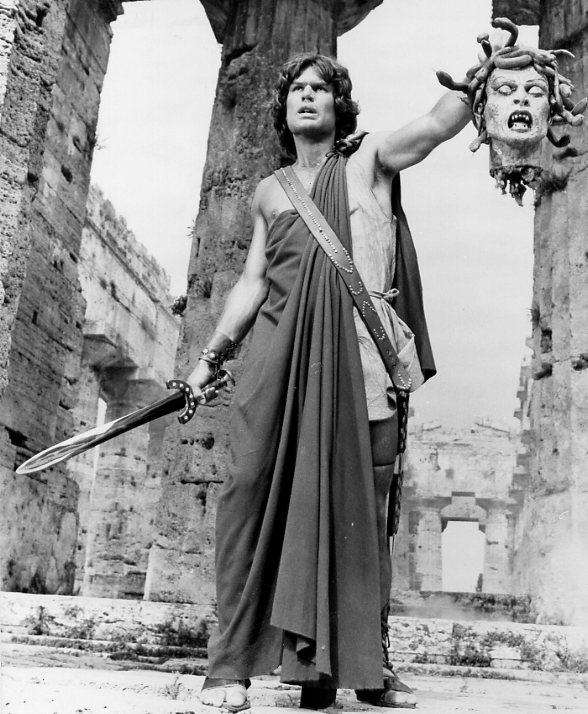
My Dad and I have a long tradition, when we get together of watching action-packed movies—nothing too violent, but enough testosterone to make it interesting.
So last night, with popcorn on our laps, we turned on his large screen and watched Clash of the Titans. Since it was late at night by the time it finished, I went to sleep thinking about how different this film was compared to the 1981 version that I recall from childhood. In particular, the main difference, besides better special effects, is in the theological disposition and attitude of the main character, Perseus. Simply put, the new Perseus is entirely deluded. He is the secular humanist par excellence, claiming to operate on his own strength and cleverness, apart from Zeus, when in fact he is dependent on the gods every step of the way.
 The original Perseus gladly received gifts from his father Zeus, not only weapons like his sword and his horse Pegasus, but his very nature and abilities as a demigod. The 1980’s Perseus demonstrated courage and valor, but he did it with a certain amount of devotion and appreciation for his father. The new Perseus, on the other hand, has a personal vendetta against the gods, including his father, so deep that he consciously and explicitly disrespects them and scorns their help.
The original Perseus gladly received gifts from his father Zeus, not only weapons like his sword and his horse Pegasus, but his very nature and abilities as a demigod. The 1980’s Perseus demonstrated courage and valor, but he did it with a certain amount of devotion and appreciation for his father. The new Perseus, on the other hand, has a personal vendetta against the gods, including his father, so deep that he consciously and explicitly disrespects them and scorns their help.
When the Stygian Witches tell Perseus that he is destined to die at the hands (or jaws) of the terrifying Kraken, he defies their prophecy asserting that he will create his own destiny. You can almost hear Sinatra’s, I Did It My Way, playing in the background.
Everyone likes a hero who displays courage and conviction. The new Perseus, however, tends to be so arrogant and disingenuous about the nature of his identity and abilities, that his integrity is compromised and, in my eyes at least, his appeal is lost.
Going to sleep last night, I was struck by the extent to which we, the Church, can potentially be deluded into behaving self-sufficiently. I am afraid that sometimes I resemble the new Perseus more than the old.




